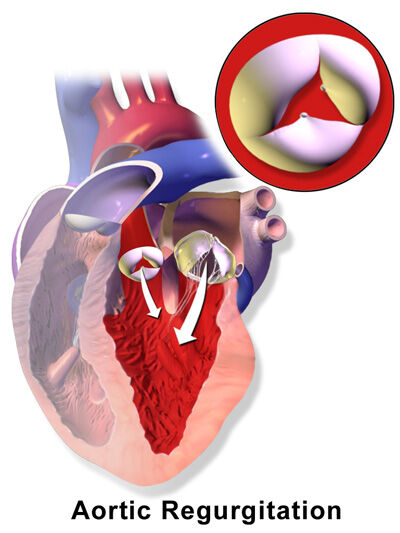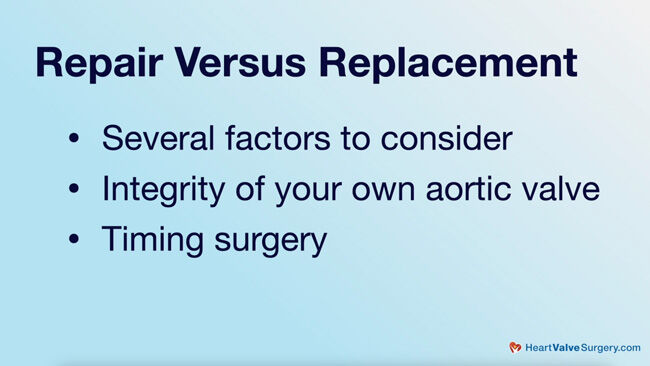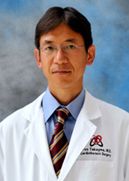Surgeon Q&A: Minimally-Invasive Aortic Valve Repair with Dr. Hiroo Takayama
Written By: Rosemarie Tracy, RN, BSN
Medical Expert: Hiroo Takayama, MD, Chief of Adult Cardiac Surgery, NewYork-Presbyterian/Columbia Irving Medical Center
Reviewed By: Adam Pick, Patient Advocate
Page last updated: January 7, 2024
We just received an excellent question from Peter about aortic regurgitation and minimally-invasive repair techniques. Peter asked me, “I was diagnosed with aortic valve regurgitation. Can this procedure be done safely using minimally invasive techniques? What questions should I ask to figure out if the surgeon has enough experience and expertise?”
To answer Peter’s question, we connected with Dr. Hiroo Takayama at the American Association for Thoracic Surgery Conference. Dr. Takayama is the Chief of Adult Cardiac Surgery at NewYork-Presbyterian/Columbia University Irving Medical Center in New York City. During his extraordinary career, Dr. Takayama has performed over 4,500 cardiac operations with more than 2,500 involving heart valve repair or replacement procedures. In our community, Dr. Takayama has successfully treated many patients including Lorri Gauliteri and Marisol Tavarez.
Key Learnings About Minimally Invasive Aortic Valve Repair
Here are key insights shared by Dr. Hiroo Takayama during our interview:
- Aortic Valve Regurgitation (AR), or a leaky aortic valve, causes blood to flow backward into the left ventricle, which can cause damage to your heart over time. Doctors also refer to aortic regurgitation as aortic insufficiency (AI).
- Damage from long-standing regurgitation or stenosis can weaken your heart, however, Dr. Takayama stated, “Aortic valve regurgitation can be a variety of degrees. Not all leaks need to be repaired. Make sure you understand what kind of leak you have, what kind of symptoms you have and what kind of heart function you have.”

- Repair versus replacement depends on several circumstances. Dr. Takayama states, “Several factors take into consideration in that discussion, most importantly, the integrity of your own valve. If the integrity is already lost, unfortunately, repair is not an option. You do need a replacement. That has a relevance to the timing of the surgery as well. All of these are all inter-linked and related.”

- According to the National Library of Medicine, minimally-invasive options for AVR are as safe as traditional open heart surgery. Although Dr. Takayama said, “Minimally invasive aortic valve repair can be done, but not many surgeons do it. In that sense, I think asking about the experience of the surgeon is a key question.”
- Dr. Takayama stated that the most essential consideration for a patient evaluating an operation, besides the indication to undergo a procedure, is to ensure that a “perfect” and “durable” repair is possible — regardless of whether minimally-invasive or by open-heart surgery. Your medical team must assess your lifestyle and the activities that are important to you to aid in choosing which procedure is best for you. Shared decision-making between you and your cardiology team based on your lifestyle, the severity of your disease, and looking into the future is and should be standard of care.
- How long is the repair going to last? Longevity data is not available because some of the valves and procedures in use are relatively new. “That, most importantly, has a relevance to the type of valve. Aortic valve has this big component of congenital abnormality; bicuspid aortic valve . That introduces some uncertainty,” Dr. Takayama stated. The longevity of bicuspid aortic valve repair also remains an unanswered question.
Thanks to Dr. Takayama and NewYork-Presbyterian/Columbia University Irving Medical Center!
On behalf of our patient community, many thanks to Dr. Hiroo Takayama for sharing his clinical expertise on minimally-invasive aortic valve repair. Also, many thanks to NewYork-Presbyterian/Columbia University Irving Medical Center for taking great care of heart valve patients!
Related Links:
- See 40 Patient Reviews for Dr. Takayama
- Dr. Hiroo Takayama: Aortic Valve Regurgitation: Why Surgical Management Remains in Vogue
Keep on tickin!
Adam
P.S. For the deaf and hard-of-hearing members of our community, I have provided a written transcript.
Video Transcript:
Adam Pick: Hi, everybody, it’s Adam with heartvalvesurgery.com. We are at the American Association for Thoracic Surgery in Los Angeles, California. I’m thrilled to be joined by Dr. Hiroo Takayama who is the Chief of Adult Cardiac Surgery at New York Presbyterian Columbia University in New York City. Dr. Takayama, we’ve known each other a long time.
Dr. Takayama: Yes.
Adam Pick: It is great to see you.
Dr. Takayama: Good to see you, Adam.
Adam Pick: Dr. Takayama, we’re at this great conference, a lot of presentations going on, a lot of new research. At the same time, we’re getting patient questions from around the world wanting to learn about valve therapy.
Dr. Takayama: Of course.
Adam Pick: This question is for you. It came in from Peter Sung who’s in Indonesia.
Dr. Takayama: Okay.
Adam Pick: He asks, “I was diagnosed with aortic valve regurgitation. Can this procedure be done safely using minimally invasive techniques? What questions should I ask to help me figure out if the surgeon has enough experience and expertise?”
Dr. Takayama: It’s a very good question. There are many, actually, questions behind this one question. The most importantly, he should try to sort out whether he has a good indication for valve surgery or not at this point. Aortic valve regurgitation can be a variety of degrees. Not all the leaks are – need to be repaired. Make sure you understand what kind of leak you have, what kind of symptoms you have, what kind of heart function do you have. First nail down to make sure you have the indication for surgery.
The second question is repair versus replacement. Several factors take into consideration in that discussion, most importantly, integrity of your own valve. If the integrity is already lost, unfortunately, repair is not an option. You do need a replacement. That has a relevance to the timing of the surgery as well. All of these are all inter-linked and related.
Now, it sounds like you are very interested in minimally invasive procedure. Minimally invasive aortic valve repair can be done, but not many surgeons do it. In that sense, I think asking about the experience of the surgeon is a key question.
Adam Pick: If I’m Peter, one of the big questions I’d be wondering is how do I know if my potential minimally invasive aortic valve repair surgeon has a track record, has volume, has outcomes? What should Peter be asking his potential surgeons?
Dr. Takayama: Excellent. Again, here we are in 2023 at AATS. There are many abstracts presented talking about aortic valve repair. For Peter, the most important thing to have besides the indication is to get perfect repair, durable repair. In my mind, that is more important than whether the surgery was done with a minimally invasive approach or not. For that, the question that you should ask to your surgeon is the experience on the valve repair, aortic valve repair.
Adam Pick: Dr. Takayama, we hear about mitral valve repair restoring patients’ life expectancy, getting them back on the normal curve of life. I’ve got to ask you the question I’m sure Peter and other folks are wondering; do we know yet? Does aortic valve repair have that same outcome for patients like Peter?
Dr. Takayama: Right. That’s a very relevant question. The long story short, the longevity, survival seems to be matching to the general population. The other question, whether similar to mitral, aortic valve repair, can it last for the rest of the life just like mitral valve repair? That question hasn’t been answered yet. That, most importantly, has a relevance to the type of the valve. Now, somewhat dissimilar or unlike mitral valve, aortic valve has this big component of congenital abnormality, bicuspid aortic valve. That introduces some uncertainty. Again, whether bicuspid repair lasts for – how long it lasts, that remains to be an unanswered question.
Adam Pick: I’ve got to ask because you are the Chief of Adult Cardiac Surgery at this great institution in New York, are you performing minimally invasive aortic valve repairs?
Dr. Takayama: Yes, I am.
Adam Pick: Great. Well, for Peter, I hope that helped you answer your question. I know it helped me learn a whole lot more.
Dr. Takayama: Awesome.
Adam Pick: Dr. Takayama, it is great to see you. Thanks for all you’re doing at New York Presbyterian Columbia University in New York City.
Dr. Takayama: Thanks a lot, Adam.






